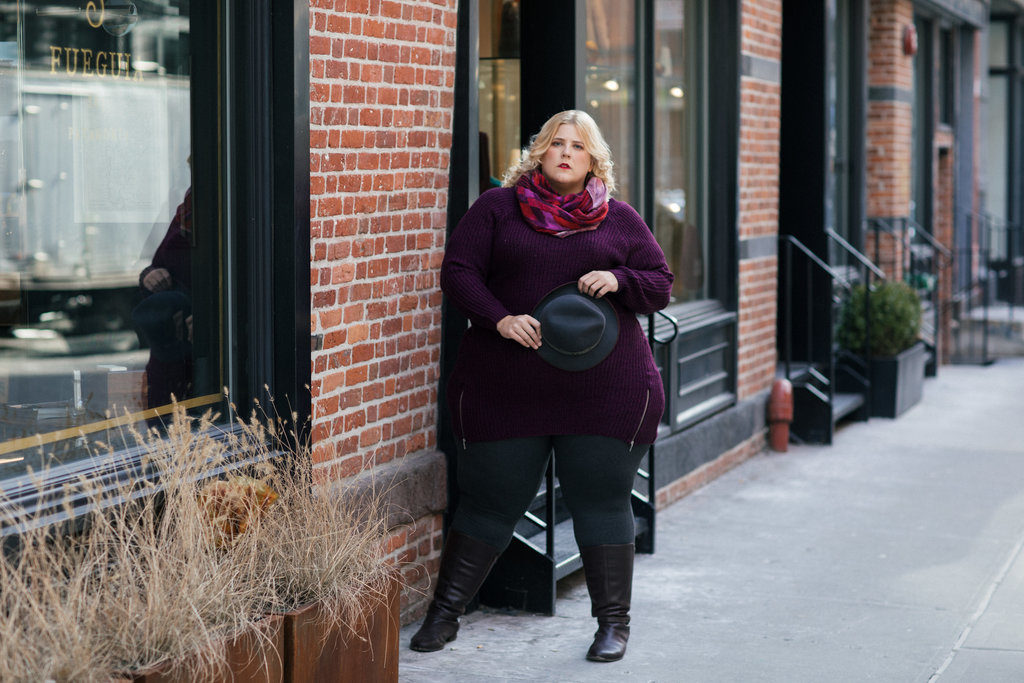
Yesterday was, for lack of a better way to describe it, disappointing. I wore an outfit I loved and some people just weren’t into it. That’s ok- I do not expect people to love every outfit I wear. It comes with the territory. What wasn’t ok was the discussion that began about what was or wasn’t flattering for my body and how I should have posed differently to look better in the clothing.
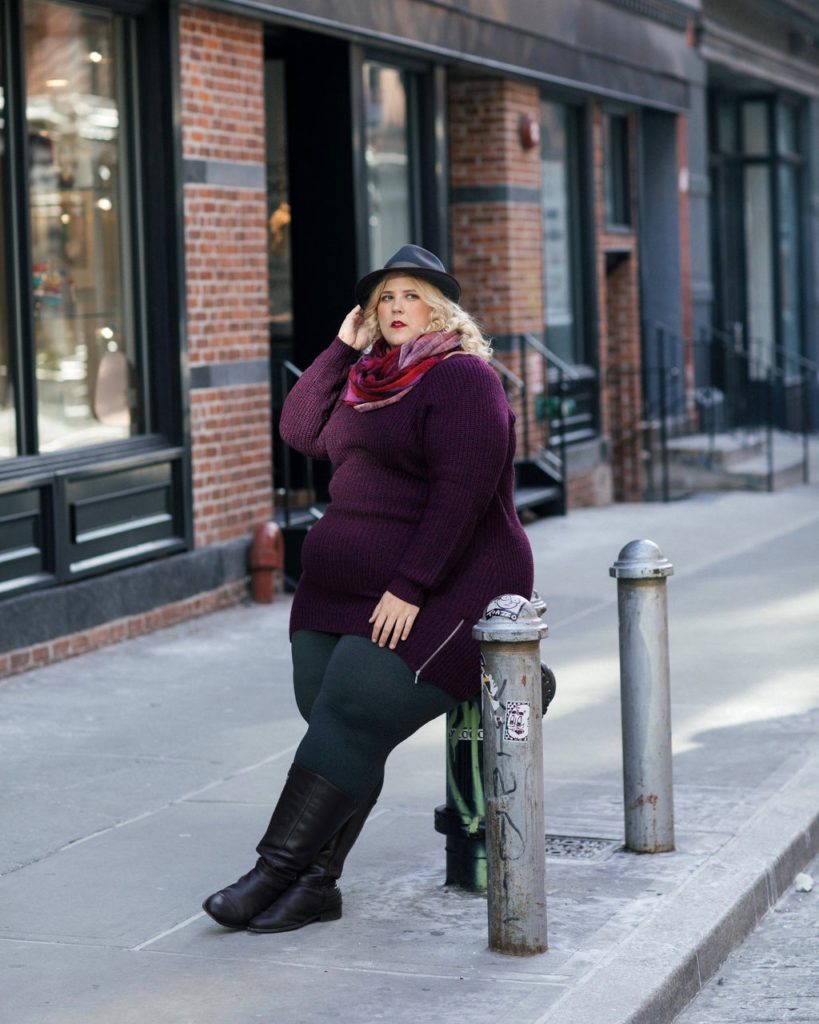
First off, not all clothing I love to wear perfectly accentuates my curves. I don’t always want to be in a bodycon. Somedays I want to be warm or comfortable or just plain lazy. Some things I love to wear don’t make my body look more aesthetically pleasing. Those days and things are just as important and worthy to be seen as the perfect days.
Flattering is a Loaded Word
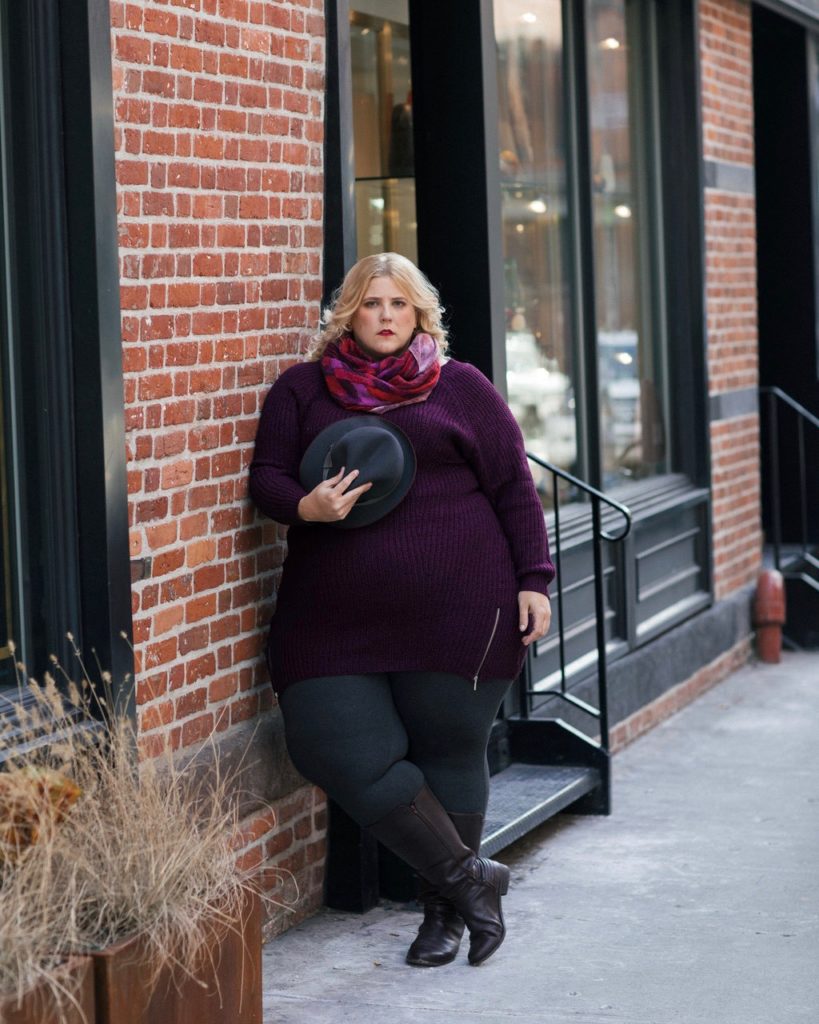
I’ve always wrestled with the word flattering, because of the context it is usually used in. According to the Cambridge dictionary flattering means to “making someone look or feel better or more attractive than usual.” To say something flatters someone is a shallow compliment, which assumes that the wearer is simply wearing something to look better. Additionally, as attractiveness is highly subjective, one person’s flattering is another person’s “oh hell no.” Plus, flattering often seems to be delivered dripping wet in the stereotypes places on idealized female bodies.
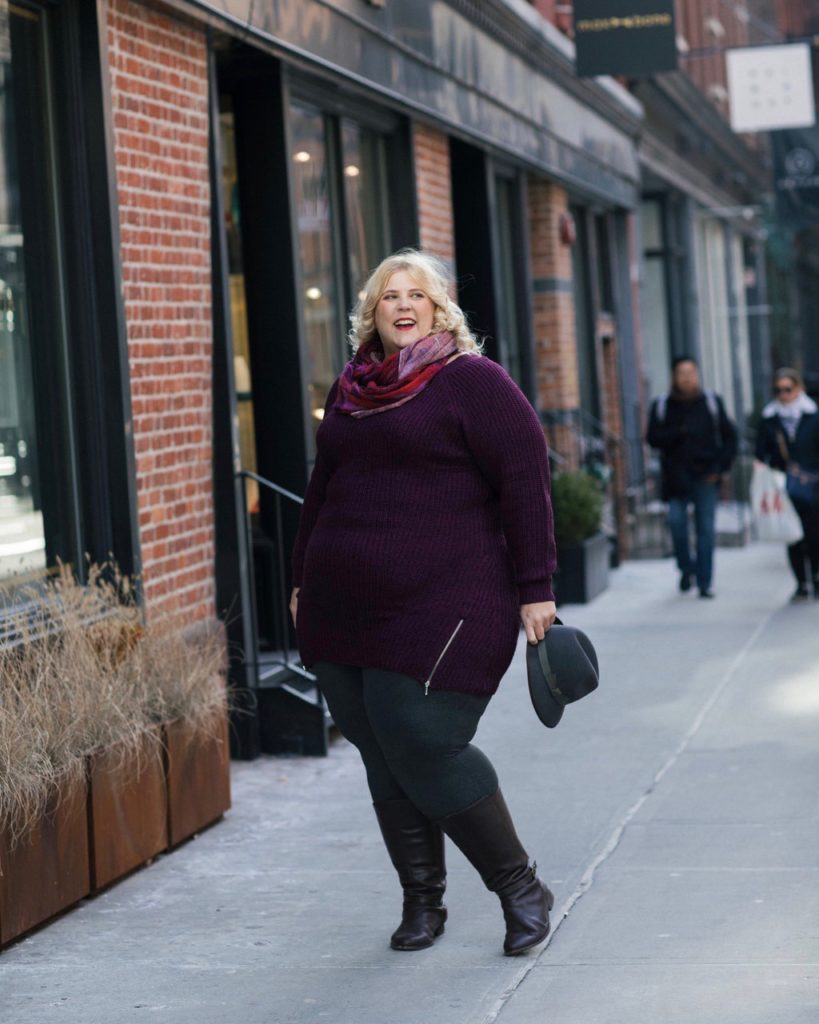
It’s as if flattering is used, in most cases, to deliver the subtext “your body isn’t ideal, but this dress makes it look better than it usually does.” How is that a compliment? And if you do think I look abnormally beautiful- why not just say that? Why use a word so loaded as “flattering’?
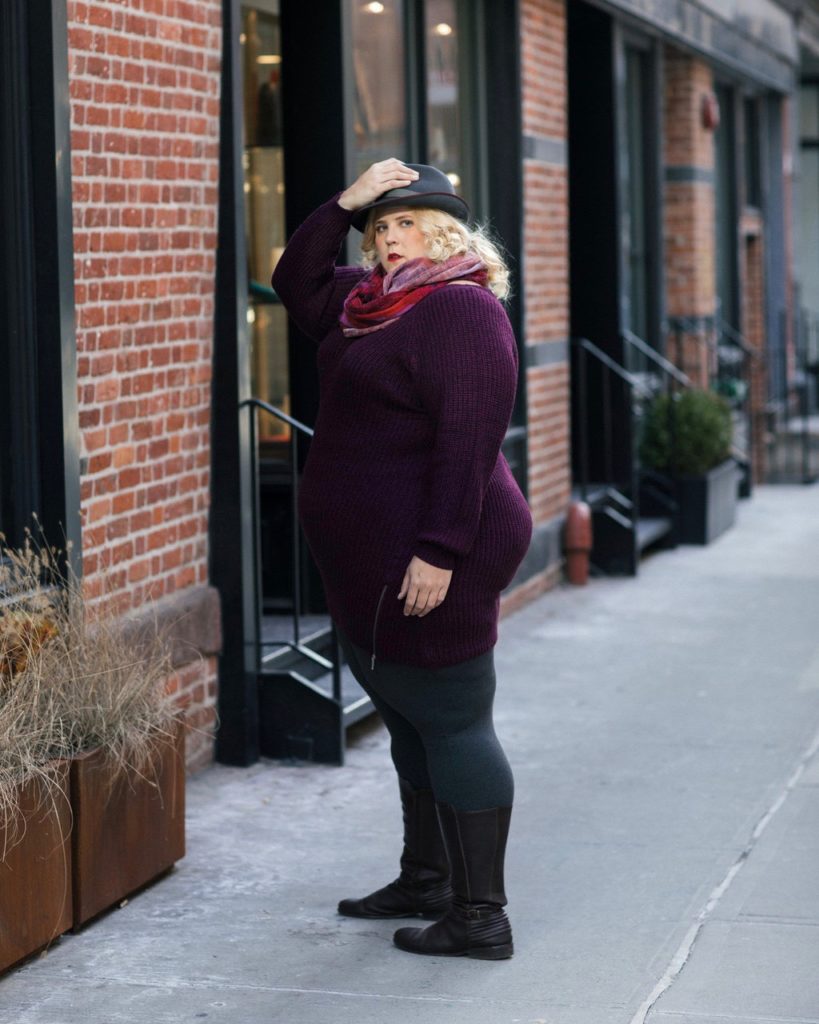
In a similar vein of thought, the word “unflattering” delivers the commentary that the individual is wearing something that makes them “less than”. Now there are situations where it’s appropriate to use this word- especially when a person asks you directly. However, most cases it is completely inappropriate to discuss. You’re literally telling a person “you look worse today then you usually do.” Instead just say something isn’t your cup of tea or -even better- say nothing at all. How someone else’s body looks is really none of your business anyways.
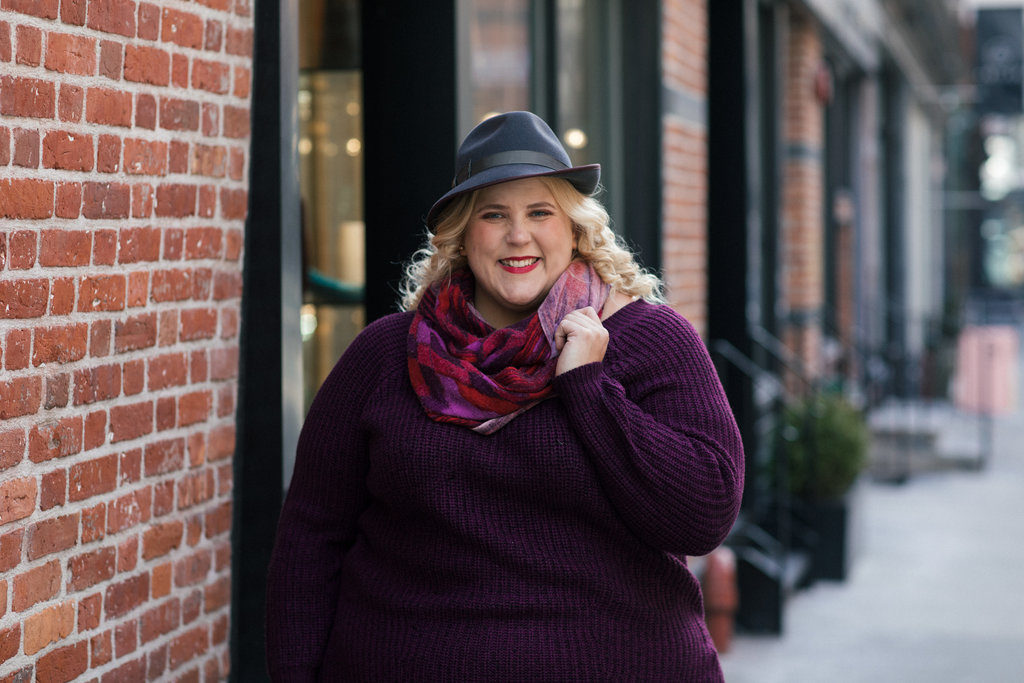
Tunic Sweater is from Yours clothing, paired with leggings from Maurices, boots from Evans, a vintage scarf and a hat from Goorin Brothers. On some links I earn affiliate commissions.


I think this is something worth pondering. Thank you for speaking about it. As a mom of teenage girls, I have to be sure of why I’m sharing my opinion with them. Is it to hear my own voice, or, to let them know that I “see” them. The latter being the only thing that matters.
I love this post! Women are culturally conditioned to assess themselves and others based on what we believe is attractive to the men around us. It’s through that lens that we view ourselves and decide whether things look “good” or “bad” on us: “does this make me look feminine?” “Does this enhance my features in a way men will find attractive?” And it’s difficult to raise yourself out of that, generally unquestioned, viewpoint. But how we dress ourselves is so much more, its how we protect ourselves from the elements, how we express our creativity, how we rebel against the standards of what a woman “should” look like. I, personally, don’t think we can ever get away from the words “flattering” or “unflattering” but we can definitely be more mindful of how loaded those terms really are. It’s something I’d never given much thought to before your post, but as soon as I started began reading your words I immediately felt the truth of it in my bones. Thanks for your insight! I can’t wait to see what you do with a whole book!